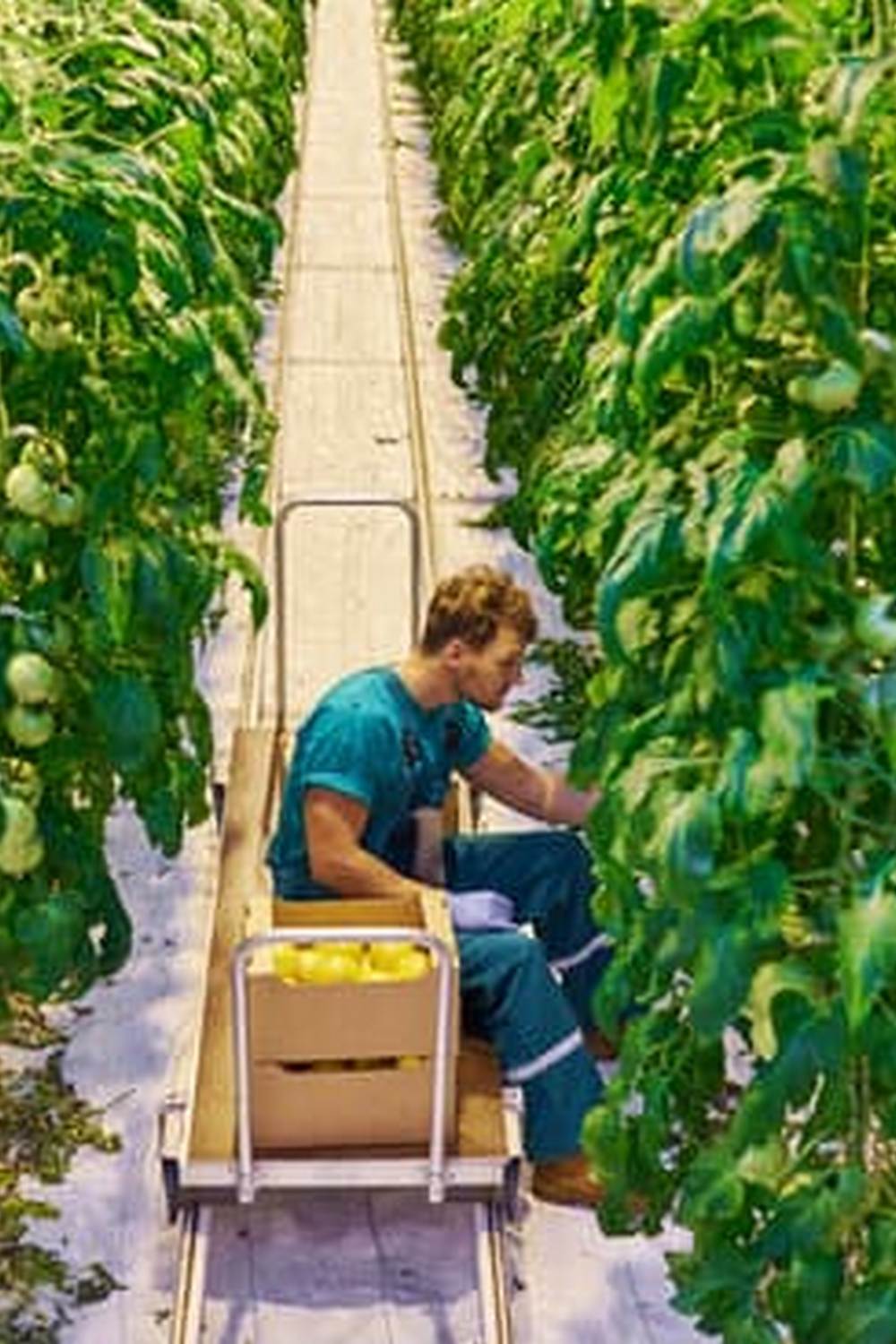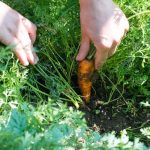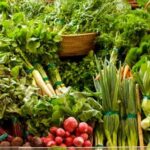Mississippi boasts a rich agricultural history and a favorable climate for growing a wide variety of vegetables. This guide to Mississippi vegetable gardening will provide beginners and seasoned gardeners alike with valuable insights and tips on how to successfully cultivate a fruitful garden in the Magnolia State. From climate considerations to soil preparation, pest control, watering techniques, and harvesting methods, this guide covers all aspects of vegetable gardening in Mississippi.
When it comes to vegetable gardening in Mississippi, understanding the state’s unique climate and growing seasons is crucial. The mild winters and hot summers create a diverse environment for different types of vegetables to thrive. By taking advantage of the long growing season and choosing appropriate vegetables based on the region’s climate patterns, gardeners can maximize their harvests and enjoy fresh produce year-round.
In addition to selecting the right vegetables for Mississippi’s climate, it is essential to focus on soil preparation and maintenance. Proper soil management techniques play a significant role in the success of any garden. By following expert tips on soil enrichment, testing, and maintenance, gardeners can ensure that their plants have access to essential nutrients for healthy growth. Stay tuned as we delve into more detailed aspects of Mississippi vegetable gardening in the following sections.
Climate and Growing Seasons in Mississippi
Mississippi’s climate plays a significant role in determining the success of vegetable gardening in the state. With its humid subtropical climate, Mississippi experiences long, hot summers and mild winters. The average annual temperature varies across the state, ranging from around 60°F in the northern regions to 67°F in the southern coastal areas. These climatic conditions create an extended growing season for gardeners, allowing for multiple harvests throughout the year.
In terms of growing seasons, Mississippi is divided into three main zones: north, central, and south. The frost dates also differ within these zones. The north typically experiences a shorter growing season with the last frost date occurring around mid-April and the first frost date around late October. In contrast, the central and southern regions have a longer growing season due to milder temperatures, with the first frost date falling around late November or early December.
Gardeners in Mississippi can take advantage of this favorable climate by planting a wide variety of vegetables throughout the year. Cool-season crops like lettuce, spinach, and broccoli thrive in the fall and spring months when temperatures are more moderate. On the other hand, warm-season vegetables such as tomatoes, peppers, and okra do well during the hot summer months. By understanding Mississippi’s climate and growing seasons, gardeners can effectively plan their vegetable garden for optimal success.
| Climate Zone | Last Frost Date | First Frost Date |
|---|---|---|
| North | Mid-April | Late October |
| Central/South | Late November/Early December | N/A |
Best Vegetables to Grow in Mississippi
Mississippi’s climate and growing seasons make it an ideal location for growing a wide variety of vegetables. With the right knowledge and care, you can enjoy a bountiful harvest from your garden. Here are some of the best vegetables to consider planting in your Mississippi garden:
- Tomatoes: Tomatoes are a popular choice for Mississippi gardeners due to their versatility and delicious flavor. They thrive in the warm, humid climate of the state.
- Okra: Okra is well-suited to Mississippi’s hot summers and can be harvested continuously throughout the season.
- Sweet Potatoes: Sweet potatoes are a staple crop in Mississippi and are relatively easy to grow. They require well-drained soil and plenty of sunlight.
In addition to these vegetables, you may also want to consider planting peppers, cucumbers, squash, and beans in your Mississippi garden. These crops can thrive in the state’s climate with proper care and attention. The key is to choose vegetables that are well-suited to Mississippi’s growing conditions and that you enjoy eating.
When planning your vegetable garden in Mississippi, it’s important to consider factors such as sunlight exposure, soil quality, and water requirements for each type of vegetable. By selecting the best vegetables for your specific location and climate, you can set yourself up for a successful growing season. The following section will provide more information on soil preparation and maintenance tips to help ensure your vegetables thrive in your Mississippi garden.
Soil Preparation and Maintenance Tips
When it comes to successful vegetable gardening in Mississippi, soil preparation and maintenance are essential tasks that can significantly impact the health and productivity of your plants. Before you start planting, it is crucial to assess the quality of your soil and make any necessary amendments to ensure optimal growing conditions for your vegetables.
Testing and Amending Your Soil
One of the first steps in preparing your soil for a successful vegetable garden is to test its pH level and nutrient content. You can purchase a DIY soil testing kit or send a sample to a local extension office for a more detailed analysis. Based on the results, you may need to amend your soil with organic matter, such as compost or well-rotted manure, to improve its fertility and structure.
Improving Drainage and Aeration
In Mississippi, where heavy rainfall can be common, ensuring good drainage in your vegetable garden is vital to prevent waterlogged soil and root rot issues. Adding organic materials like compost or peat moss can help improve soil structure and promote better drainage. Additionally, incorporating raised beds or mounding soil can also aid in improving drainage and promoting healthy plant growth.
Mulching and Weed Control
Mulching not only helps retain moisture in the soil but also suppresses weed growth, which can compete with your vegetables for nutrients and water. Organic mulches like straw, leaves, or grass clippings can provide additional benefits by gradually enriching the soil as they break down. Regular weeding is also important in maintaining a healthy vegetable garden in Mississippi – consider hand-weeding or using mulch to minimize weed growth without resorting to chemical herbicides.
By following these soil preparation and maintenance tips in your Mississippi vegetable garden, you can create an optimal growing environment for your plants and increase the likelihood of a bountiful harvest at the end of the season. Remember that healthy soil is the foundation of a successful garden, so investing time and effort into enhancing its quality will pay off in healthier plants and tastier vegetables for you to enjoy.
Pests and Diseases
Common Pests in Mississippi Vegetable Gardens
One of the biggest challenges for vegetable gardeners in Mississippi is dealing with pests that can damage crops. Some common pests to watch out for in Mississippi include aphids, cucumber beetles, squash bugs, and tomato hornworms. These pests can quickly decimate a garden if left unchecked. Regular monitoring of plants and quick action when pests are spotted is essential in preventing widespread damage.
Identifying Diseases in Your Vegetable Garden
In addition to pests, diseases can also wreak havoc on Mississippi vegetable gardens. Common diseases that gardeners may encounter include powdery mildew, blight, and root rot. It’s important to be able to identify the symptoms of these diseases early on so that appropriate measures can be taken to prevent their spread. Proper sanitation practices, such as cleaning tools and removing diseased plant material, can help reduce the risk of disease outbreaks.
Controlling Pests and Diseases Naturally
While chemical pesticides can effectively control pests and diseases, many gardeners in Mississippi prefer to use natural methods to protect their crops. There are several organic options available for controlling pests, such as using insecticidal soaps or introducing beneficial insects like ladybugs or praying mantises. For managing diseases, crop rotation and selecting disease-resistant varieties of vegetables can help prevent infections.
Additionally, practicing good garden hygiene by keeping weeds at bay and regularly removing debris can minimize the risk of pest infestations and disease outbreaks. By taking a proactive approach to pest and disease management, Mississippi vegetable gardeners can enjoy healthy harvests throughout the growing season.
Watering and Irrigation Techniques for Mississippi Vegetable Gardens
Watering and irrigation are essential aspects of successful vegetable gardening in Mississippi. With the state’s hot and humid climate, maintaining proper moisture levels is crucial for the health and growth of your plants. Here are some techniques to help you effectively water your vegetable garden:
- Monitor Soil Moisture: Check the soil moisture regularly by sticking your finger into the soil. If it feels dry, it’s time to water.
- Deep Watering: Instead of frequent shallow watering, opt for deep watering sessions to encourage deeper root growth.
- Mulching: Apply a layer of mulch around your plants to help retain moisture in the soil and reduce water evaporation.
Irrigation plays a significant role in keeping your Mississippi vegetable garden thriving. Considering the state’s unpredictable rainfall patterns, having a reliable irrigation system is essential. Here are some irrigation techniques that you can implement in your garden:
- Drip Irrigation: Drip irrigation delivers water directly to the roots of your plants, minimizing evaporation and reducing water waste.
- Soaker Hoses: Soaker hoses are another efficient way to provide consistent watering to your vegetables while reducing water usage.
- Rain Barrels: Collect rainwater in barrels during heavy rainfall events and use it for watering your garden during drier periods.
By utilizing these watering and irrigation techniques in your Mississippi vegetable garden, you can ensure that your plants receive adequate moisture for healthy growth and bountiful harvests. Remember to adjust your watering schedule based on weather conditions and the specific needs of each type of vegetable you are growing.
Companion Planting Strategies for Increased Success
Companion planting is a gardening practice that involves planting different crops near each other to reap the benefits of their positive interactions. In Mississippi, utilizing companion planting strategies can help improve the overall health and yield of your vegetable garden. One common example is planting marigolds alongside tomatoes to deter pests like nematodes while also enhancing soil health. Additionally, interplanting beans with corn can provide natural trellising support for the beans while improving nitrogen fixation in the soil.
Another useful companion planting strategy in Mississippi is pairing aromatic herbs like basil or dill with vegetables such as tomatoes or peppers. Not only do these herbs help repel pests, but they also attract beneficial insects like bees and ladybugs, which are essential for pollination and pest control. Furthermore, incorporating flowers like zinnias or sunflowers into your vegetable garden not only adds beauty but can also attract pollinators and beneficial insects.
When planning your companion planting layout, consider the growth habits and needs of each plant to ensure they are compatible. Some plants may compete for nutrients or space if planted too closely together, so it is crucial to research which combinations work best together. By strategically implementing companion planting strategies in your Mississippi vegetable garden, you can create a more sustainable and biodiverse ecosystem that promotes healthy plant growth and reduces the need for harmful pesticides.
| Companion Plants | Vegetables to Pair With |
|---|---|
| Marigolds | Tomatoes, Peppers |
| Basil | Tomatoes, Peppers, Eggplants |
| Zinnias | Cucumbers, Squash |
Harvesting and Preserving Your Mississippi Vegetables
Once your vegetables in your Mississippi garden have reached their peak ripeness, it’s time to harvest and preserve them for future use. Harvesting at the right time is crucial to ensure maximum flavor and nutrients in your produce.
Different vegetables have different harvesting times, so it’s important to familiarize yourself with each crop’s specific signs of readiness. For example, tomatoes should be harvested when they are fully ripe but still firm, while leafy greens like lettuce and kale can be picked as soon as they reach a usable size.
After harvesting your vegetables, proper preservation techniques will help you enjoy them long after the growing season has ended. Canning, freezing, and drying are popular methods for preserving vegetables. Canning involves sealing vegetables in glass jars with heat to kill bacteria and other microorganisms, while freezing requires blanching the vegetables before storing them in a freezer-safe container. Drying is a great option for herbs and some vegetables like peppers and tomatoes.
In addition to traditional preservation methods, consider incorporating your freshly harvested vegetables into meals that can be enjoyed immediately or stored for later consumption. Pickling cucumbers or okra is a classic way to extend their shelf life while infusing them with tangy flavors.
Turning excess tomatoes into pasta sauce or salsa is another great way to make the most out of your harvest. By maximizing the use of your Mississippi-grown produce, you can savor the flavors of your garden all year round.
Tips for Success
When it comes to successful vegetable gardening in Mississippi, incorporating different techniques like container gardening, raised beds, and vertical gardening can greatly enhance your yields and overall garden experience. These methods not only help maximize space but also provide better control over soil quality, water retention, and pest management.
Container gardening is an excellent option for those with limited space or poor soil quality. By using containers, you can easily move your plants around to optimize sunlight exposure and protect them from excessive rain or wind. This method is particularly useful for growing herbs, smaller vegetables, and even fruit trees on patios or balconies.
Raised beds are another popular choice among Mississippi gardeners because they allow for better drainage, warmth retention, and easier weed control. They can be customized to fit any size or shape of the garden area and are a great option for those dealing with heavy clay or sandy soils. Raised beds also make it simpler to add compost and other nutrients to improve soil fertility. Additionally, the higher planting level makes gardening more accessible for individuals with mobility issues.
Vertical gardening is a fantastic way to utilize vertical space efficiently while adding visual interest to your garden. Vining plants like peas, beans, cucumbers, and tomatoes thrive when trained on trellises or cages. This method not only saves ground space but also reduces the risk of fungal diseases by improving air circulation between plants.
Vertical gardening can also be incorporated into small spaces like patios or balconies by utilizing wall-mounted planters or hanging baskets. By combining these tips with the knowledge gained from this guide to Mississippi vegetable gardening, you’ll be well on your way to a bountiful harvest in your own backyard oasis.
Frequently Asked Questions
What Vegetables Grow Best in Mississippi?
Vegetables that grow best in Mississippi include okra, tomatoes, peppers, squash, cucumbers, and sweet potatoes. These vegetables thrive in the warm climate and fertile soil of the state.
What Order Should I Plant My Vegetable Garden?
When planning your vegetable garden in Mississippi, it is essential to consider the specific needs of each plant. Generally, it is recommended to plant larger vegetables like tomatoes and peppers towards the back of the garden to prevent shading smaller ones. Additionally, rotating crops each year can help prevent soil depletion.
What Month Do You Plant Tomatoes in Mississippi?
In Mississippi, tomatoes are typically planted in late March through early April. This timing allows the plants to establish themselves before the heat of summer kicks in. It’s crucial to pay attention to local weather patterns and frost dates when deciding on the exact planting time for tomatoes.

If you’re looking to get into vegetable gardening, or are just looking for some tips on how to make your current garden better, then you’ve come to the right place! My name is Ethel and I have been gardening for years. In this blog, I’m going to share with you some of my best tips on how to create a successful vegetable garden.





